Filter by
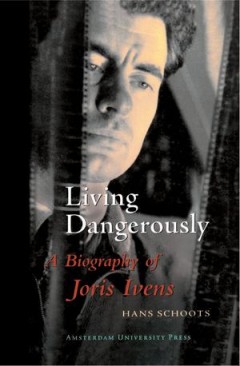
Living Dangerously
The Dutch film maker Joris Ivens (1898-1989) was one of the founding fathers of documentary film. The career of this eternal traveller spanned over sixty years, from his first film in the twenties to his last, finished at the age of ninety. Among Ivens's friends and collaborators were leading filmmakers and actors like Eisenstein, Pudovkin, Dovzhenko, Chaplin, Milestone, Capra, Losey, Flaherty,…
- Edition
- -
- ISBN/ISSN
- 9789053563885
- Collation
- -
- Series Title
- -
- Call Number
- 791 SCH l
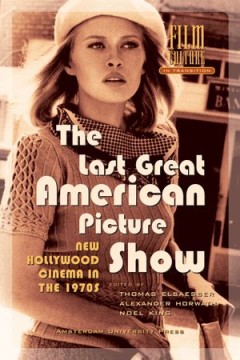
The Last Great American Picture Show
The Last Great American Picture Show brings together essays by scholars and writers who chart the changing evaluations of the American cinema of the 1970s, sometimes referred to as the decade of the lost generation, but now more and more recognized as the first New Hollywood, without which the cinema of Francis Coppola, Steven Spielberg, Robert Zemeckis, Tim Burton or Quentin Tarantino could no…
- Edition
- -
- ISBN/ISSN
- 9789053566312
- Collation
- -
- Series Title
- -
- Call Number
- 791 KIN l
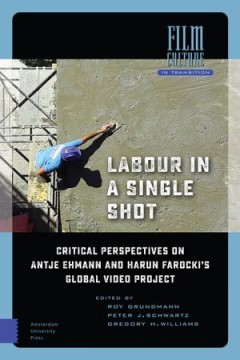
Labour in a Single Shot: Critical Perspectives on Antje Ehmann and Harun Faro…
This collection of essays offers a critical assessment of Labour in a Single Shot, a groundbreaking documentary video workshop. From 2011 to 2014, curator Antje Ehmann and film- and videomaker Harun Farocki produced an art project of truly global proportions. They travelled to fifteen cities around the world to conduct workshops inspired by cinema history’s first film, Workers Leaving the Lum…
- Edition
- -
- ISBN/ISSN
- 9789048550210
- Collation
- -
- Series Title
- -
- Call Number
- 791.43 LAB l
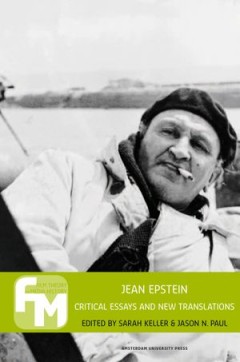
Jean Epstein
Filmmaker and theoretician Jean Epstein profoundly influenced film practice, criticism and reception in France during the 1920s and well beyond. His work not only forms the crux of the debates of his time, but also remains key to understanding later developments in film practice and theory. Epstein's film criticism is among the most wide-ranging, provocative and poetic writing about cinema …
- Edition
- -
- ISBN/ISSN
- 9789089642929
- Collation
- -
- Series Title
- -
- Call Number
- 791 PAU j
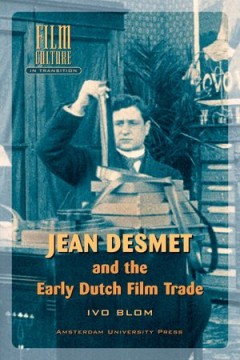
Jean Desmet and the Early Dutch Film Trade
Dutch cinema owner and film distributor Jean Desmet (1875-1956). The collection comprises almost nine hundred European and American films in all genres, a collection of publicity material and a dauntingly large business archive. These three sources form the basis of this first comprehensive reconstruction of Desmet's career: from his nomadic beginnings as a traveling showman, working the season…
- Edition
- -
- ISBN/ISSN
- 9789053565704
- Collation
- -
- Series Title
- -
- Call Number
- 791 BLO j
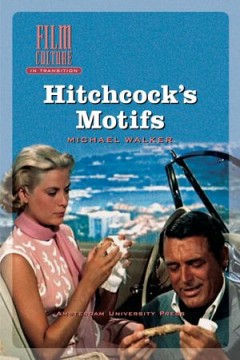
Hitchcock's Motifs
Among the abundant Alfred Hitchcock literature, Hitchcock's Motifs has found a fresh angle. Starting from recurring objects, settings, character-types and events, Michael Walker tracks some forty motifs, themes and clusters across the whole of Hitchcock's oeuvre, including not only all his 52 extant feature films but also representative episodes from his TV series. Connections and deeper inflec…
- Edition
- -
- ISBN/ISSN
- 9789053567739
- Collation
- -
- Series Title
- -
- Call Number
- 791.43 WAL h
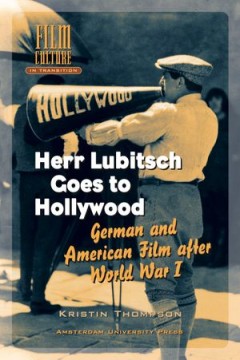
Herr Lubitsch Goes to Hollywood: German and American Film after World War I
Ernst Lubitsch, the German film director who left Berlin for Hollywood in 1923, is best remembered for the famous "Lubitsch touch" in such masterpieces as Trouble in Paradise and Ninotchka, featuring Greta Garbo. Kristin Thompson's study focuses on Lubitsch's silent films from the years between 1918 and 1927, tracing the impact this director had on consolidating classical Hollywood filmmaking. …
- Edition
- -
- ISBN/ISSN
- 9789053567081
- Collation
- -
- Series Title
- -
- Call Number
- 791.43 THO h
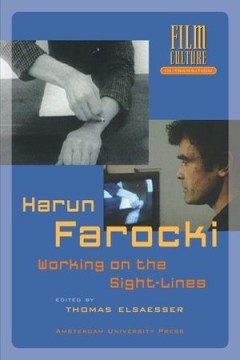
Harun Farocki
For more than thirty years Farocki has been a filmmaker, documentarist, film-essayist and installation artist. What preoccupies him above all is not so much an image of life, but the life of images, as they surround us in the newspapers, the cinema, history books, user manuals, posters, CCTV footage and advertising. His vast oeuvre of some sixty films includes three feature films (Zwischen den …
- Edition
- -
- ISBN/ISSN
- 9789053566350
- Collation
- -
- Series Title
- -
- Call Number
- 791.43 ELS h
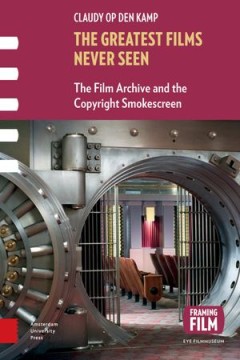
The Greatest Films Never Seen: The Film Archive and the Copyright Smokescreen
Orphan works, or artworks for which no copyright holder is traceable, pose a growing problem for museums, archives, and other heritage institutions. As they come under more and more pressure to digitize and share their archives, they are often hampered by the uncertain rights status of items in their collections. This book uses the prism of copyright to reconsider human agency and the politics …
- Edition
- -
- ISBN/ISSN
- 9789048531042
- Collation
- -
- Series Title
- -
- Call Number
- 791 KAM g
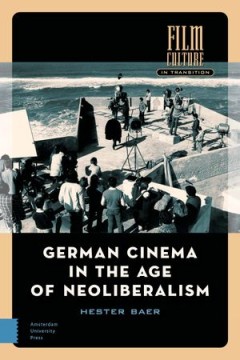
German Cinema in the Age of Neoliberalism
This book presents a new history of German film from 1980-2010, a period that witnessed rapid transformations, including intensified globalization, a restructured world economy, geopolitical realignment, and technological change, all of which have affected cinema in fundamental ways. Rethinking the conventional periodization of German film history, Baer posits 1980-rather than 1989-as a crucial…
- Edition
- -
- ISBN/ISSN
- 9789048551958
- Collation
- -
- Series Title
- -
- Call Number
- 791.43 BAE g
 Computer Science, Information & General Works
Computer Science, Information & General Works  Philosophy & Psychology
Philosophy & Psychology  Religion
Religion  Social Sciences
Social Sciences  Language
Language  Pure Science
Pure Science  Applied Sciences
Applied Sciences  Art & Recreation
Art & Recreation  Literature
Literature  History & Geography
History & Geography